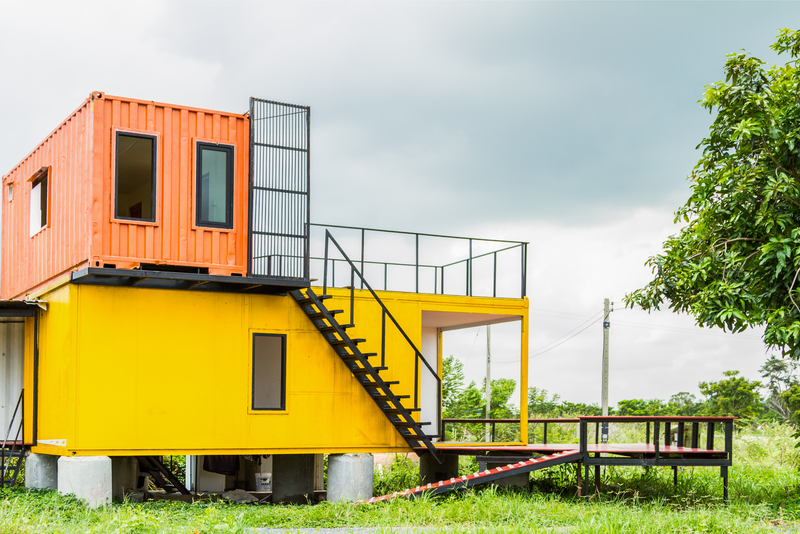The Ultimate Guide to Responsible PPE Waste Management
Personal protective equipment (PPE) has never been more important in workplaces and communities worldwide. From healthcare facilities to construction sites and everyday public interactions, the widespread use of PPE presents urgent challenges for waste management. Inappropriate disposal of masks, gloves, gowns, and face shields can harm the environment and public health. This comprehensive guide provides actionable insights into responsible PPE waste management--empowering organizations and individuals to make a real difference.
Understanding PPE Waste: What It Is and Why It Matters
PPE waste refers to used or discarded personal protective equipment. This includes items such as:
- Disposable and reusable face masks
- Gloves (nitrile, latex, vinyl)
- Protective gowns and coveralls
- Face shields and goggles
- Shoe and head covers
- Other single-use safety gear
The global surge in PPE use, especially during pandemics such as COVID-19, has highlighted the significant environmental and health risks associated with inadequately managed PPE waste. Responsible PPE waste management is crucial for minimizing resource depletion, pollution, and transmission of infectious diseases.
Environmental Impact of Improper PPE Disposal
Improperly discarded PPE can:
- Contribute to plastic pollution in oceans and landfills
- Release toxic microplastics that harm aquatic life
- Block drains, worsening flooding and sanitation issues
- Endanger wildlife that may ingest or become entangled in discarded items
Every step towards responsible PPE waste management protects our ecosystems and public well-being.

The Lifecycle of PPE Waste: From Use to Disposal
Responsible PPE disposal starts long before an item is thrown away. It encompasses the entire lifecycle from procurement to end-of-life treatment. Understanding these stages helps organizations and individuals pinpoint opportunities for waste minimization and proper handling.
Stages of PPE Waste Management
- Procurement and Usage: Sourcing the right amount and type of PPE, prioritizing reusable options where possible.
- Collection and Segregation: Implementing designated bins and color-coded systems to separate PPE waste from general and recyclable waste.
- On-site Handling and Storage: Ensuring PPE waste is handled with care to avoid contamination and exposure, and stored securely until collection.
- Transportation: Using licensed contractors to safely transport hazardous or potentially infectious PPE waste to treatment facilities.
- Treatment and Disposal: Choosing appropriate treatment methods such as incineration, autoclaving, or specialized recycling based on local regulations and waste type.
- Documentation and Reporting: Maintaining thorough records to ensure compliance and traceability.
Best Practices for Responsible PPE Waste Management
Establishing robust procedures for PPE disposal is key to safeguarding both human health and the environment.
PPE Waste Segregation
Proper sorting at the source determines the safety and effectiveness of all subsequent management steps. Follow these tips:
- Use clearly labeled, color-coded bins for infectious, non-infectious, and recyclable PPE waste.
- Educate staff on which bin each type of PPE waste belongs to--post signs, hold training sessions, and perform regular audits.
- Never mix PPE waste with household waste or standard office trash.
- Ensure bins are hands-free or foot-operated to minimize contact and contamination.
PPE Waste Collection and Storage
- Use leak-proof, puncture-resistant bags and containers.
- Seal bags before transportation; do not overfill or press down contents.
- Store PPE waste in a secure, designated area away from public access until disposal.
- Schedule regular waste collection to avoid accumulation and potential hazards.
Safe Transportation and Disposal
- Partner with licensed waste management contractors experienced in handling medical and hazardous waste.
- Ensure all transport containers are labeled and documented to comply with local, state, and national regulations.
- Opt for treatment methods that minimize environmental impact, such as autoclaving or energy recovery incineration over landfilling where possible.
Legal and Regulatory Considerations for PPE Waste
Responsible PPE waste management is not just a best practice--it is often a legal requirement. Regulations differ by region but commonly involve:
- Classification: PPE waste--especially from healthcare or exposed to infectious agents--may be categorized as hazardous or infectious waste.
- Disposal Guidelines: Strict rules regarding containment, labeling, transportation, treatment, and documentation must be adhered to.
- Environment and Public Safety: Laws may impose penalties for illegal dumping or mixing hazardous PPE waste with general refuse.
Familiarize yourself with relevant guidelines from organizations such as the World Health Organization (WHO), Centers for Disease Control and Prevention (CDC), and your local regulatory bodies. Regular compliance audits, staff training, and clear documentation are essential for staying on the right side of the law.
Workplace Compliance Strategies
- Conduct regular risk assessments of PPE use and waste generation.
- Update your PPE waste policy as regulations, technology, and best practices evolve.
- Appoint a responsible officer to oversee waste management and regulatory adherence.
Innovative Solutions for Responsible PPE Waste Management
The rise of single-use PPE has spurred innovation in disposal and recycling methods. Several promising approaches are emerging worldwide:
PPE Waste Recycling Programs
- Plastics Recovery: Some advanced facilities process polypropylene from masks and gowns into raw plastic pellets for manufacture.
- Specialized Collection: Public drop-off points and mail-back programs encourage safe return of used PPE for recycling.
- Upcycling Initiatives: Certain organizations transform PPE waste into construction materials, park benches, or art.
Note: Not all PPE is suitable for standard recycling. PPE waste recycling requires dedicated, hygienic processing streams to avoid cross-contamination.
Biodegradable and Reusable PPE
- Choose bio-based or compostable PPE products where performance and safety standards permit.
- Opt for reusable PPE that can be properly disinfected, such as cloth masks and washable gowns--reducing overall waste volumes.
Energy Recovery and Waste-to-Energy (WTE)
- Certain waste-to-energy plants can safely combust PPE waste to generate electricity and reduce landfill loads.
- Incineration with energy recovery is preferable to simple burning, as it reduces emissions and captures valuable heat.
PPE Waste Minimization: Prevention Is the Best Solution
The most sustainable approach is to reduce PPE waste generation in the first place. Here's how:
- Assess Actual Needs: Avoid overstocking and unnecessary PPE use through regular inventory reviews and risk-based allocation.
- Staff Training: Educate employees on proper donning and doffing techniques to minimize damage and unnecessary disposal.
- Encourage Reusables: Where suitable, switch from single-use to reusable PPE items and set up effective cleaning protocols.
- Bulk Distribution: Reduce packaging waste by purchasing in bulk.
- Promote Eco-Design: Choose suppliers committed to sustainable materials and minimal packaging.
Educating Teams and Communities About PPE Waste Management
Awareness training is crucial to ensure policy is translated into action. Practical steps include:
- Posting clear signage near PPE distribution and disposal points.
- Running regular safety briefings and environmental workshops.
- Providing informative resources on the importance and process of responsible PPE disposal.
- Empowering staff to report issues, suggest improvements, and lead by example.
Frequently Asked Questions (FAQs): PPE Waste Management
- Can PPE be recycled? Some PPE products made from single-grade plastics are recyclable through specialized channels, but general curbside recycling is not suitable for contaminated PPE waste unless approved by local authorities.
- Is burning PPE a safe disposal method? Incineration in dedicated facilities is generally safe and effective. However, open burning creates dangerous pollutants and should be avoided.
- What responsibility do individuals have for PPE waste? Individuals should follow local guidance, use designated disposal bins, avoid littering, and participate in take-back schemes where available.
- What can businesses do to reduce PPE waste? Invest in reusable products, train staff, segregate waste, and choose sustainable suppliers. Adopting a zero-waste mindset makes a big difference.

Conclusion: Your Role in Responsible PPE Waste Management
The safe, sustainable management of PPE waste is everyone's responsibility. Whether you're a business leader, essential worker, or community member, you play a key role in protecting our environment and society with your choices. Adopting responsible PPE disposal practices--supported by strong policies, innovative solutions, and ongoing education--helps curb pollution, safeguard health, and support the circular economy. Together, let's commit to responsible PPE waste management for a cleaner, safer future.
Key Takeaways
- Responsible PPE waste management prevents environmental pollution and reduces disease transmission risks.
- Segregation, collection, transport, and treatment must follow strict guidelines.
- Innovative recycling and waste minimization approaches are transforming PPE disposal.
- Legal compliance and staff education are essential for successful implementation.
- Everyone has a role in fostering a culture of sustainability around PPE use and waste management.
Additional Resources and References
- U.S. EPA - Managing PPE Waste
- WHO - Infection prevention and control (IPC) for COVID-19: Waste management
- CDC - Healthcare Environmental Hygiene: Waste Management
- Research: PPE Pollution and Microplastics in the Environment
Start making a difference today--adopt responsible PPE waste management in your organization and daily life.
